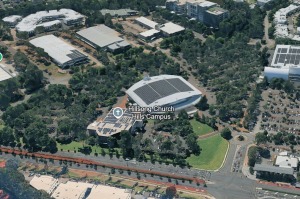What Makes a Thriving Mainline Church When Many are Dying?
At a time when most mainline denominations are continuing to experience consecutive drops in membership, a critically acclaimed author presented what actually makes a mainline church thrive.
Diana Butler Bass, scholar and author of Christianity for the Rest of Us, was engaging a Christian crowd at Pittsburgh Theological Seminary's annual Summer Leadership Conference when she presented some of her findings on thriving churches.
Successful congregations cultivate spiritual practices in daily life, promote tradition without using it as a fence to keep people out and offer a quest for wisdom, not pat answers, she said, according to the Pittsburgh Post-Gazette.
As project director of a Lilly Endowment study of mainline Protestant vitality from 2002 to 2006, Butler Bass has studied thriving congregations in the Episcopal Church, Evangelical Lutheran Church in America, United Methodist Church, Presbyterian Church (USA), Disciples of Christ and United Church of Christ.
"[M]illions of people would choose mainline denominations if we gave them something worth choosing," she said, according to the local newspaper.
She noted that today's Americans don't inherit faith. Rather, they choose it.
Earlier studies have shown a lack of denominational loyalty among today's churchgoers. LifeWay Research released a study this year that found 54 percent of people who switch churches change denominations. Less than half value denomination.
Whatever the style of music a congregation worships to, Butler Bass said it can be classical or contemporary as long as "people feel the presence of God in it and can participate in it."
Thriving mainline churches are also strong in basic practices of faith, which includes hospitality. Butler Bass surprisingly found that the successful congregations she studied also embraced diversity. And the most successful congregations "created communities that were purposefully diverse. That included racial diversity, theological diversity, political diversity and diversity of life experience," she added, according to the local Post-Gazette.
Highlighting the need for change, Butler Bass said Americans are looking for new ways to experience religious community and thriving congregations have been able to change the way they do ministry to create those communities. Churches that do not implement change and continue to offer conventional church programs from the 1950s wither and die, she noted.
Her words echo those of New Church Specialties founder Dr. Larry McKain, who has also stressed change in ministry. The churches that are really having trouble are those that never changed its ministry since 1950, he said in an earlier interview with The Christian Post. And churches have to continue to change.
"If you don't change, you will cease to exist," he said.
Americans today are also out on a "quest for meaning," said Butler Bass.
People are not looking to join churches to find easy answers, she stressed.
"Meaning is not the same thing as answers. They want to know how to navigate suffering. What about their vocation or job? They want to know how they can change the world."
Butler Bass is a keynote speaker at the June 10-13 conference titled "Transforming Faith: Help for You, Your Congregation, and Your Community" at Pittsburgh Theological Seminary - a graduate professional institution of the Presbyterian Church (U.S.A). She has written six books on American religious practice and is currently senior fellow at the Cathedral College of the Episcopal Washington National Cathedral in Washington, D.C., and serves on the national board of directors for Emergent Village.



























